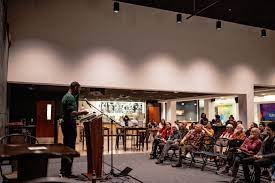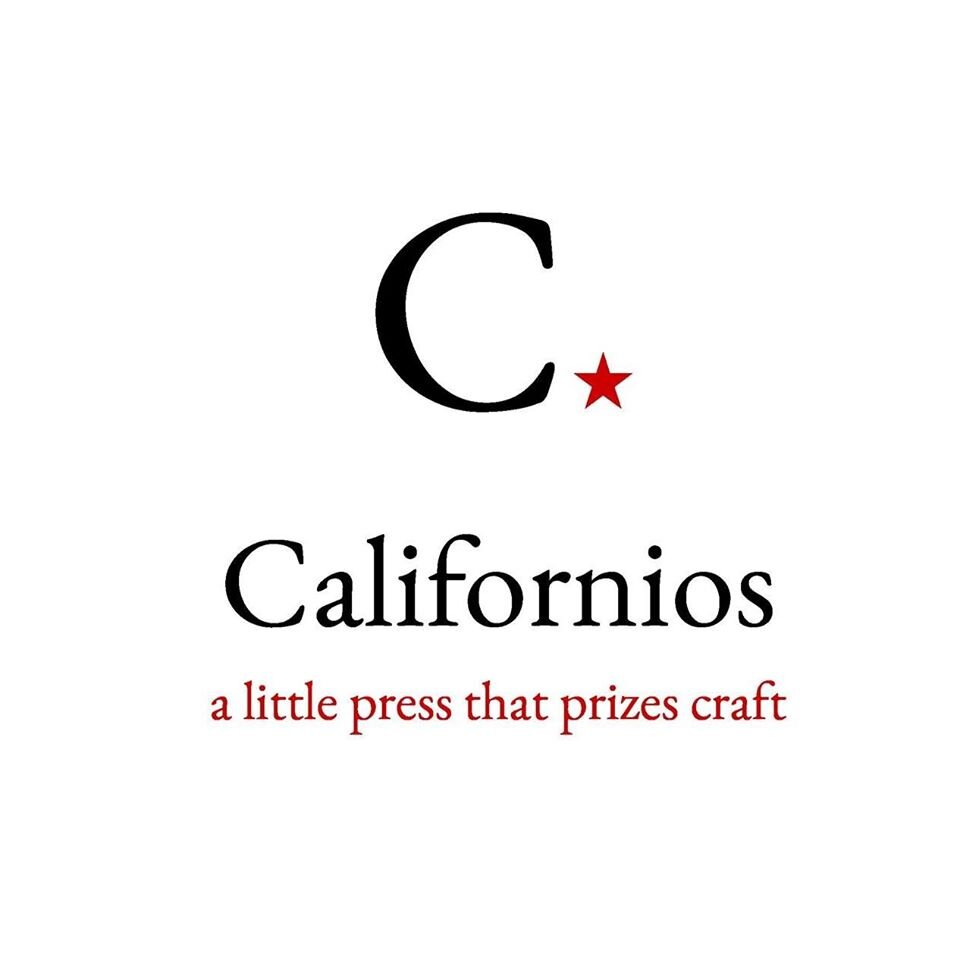I was sharing the burden of vulnerability in writing. An exercise in revealing without revealing. Saying something at a slant, through omission, obscured, knowing only some would see the picture clearly. Knowing that those who did see at first glance were able to because of something shared. Something unspoken, but now brought to light.
Five New Poems at Rigorous Magazine
The following five (5) poems were just published at Rigorous Magazine .
“Little Africa” ~ a school poem
an open letter to the young man on the subway platform, looking back, hurt and disgusted ~ for when “whistling Vivaldi?” isn’t enough
honesty in advertising ~ exactly what the title says
the conversation with my pastor, after she posted my bail ~ midrash
exposure therapy ~ being an ally takes different forms
They seem to like me over there and I’m happy to be featured on their pages again.
"an open letter to my well-intentioned white educators: past, present, and future" at Ninth Letter
“an open letter to my well-intentioned white educators: past, present, and future”
This poem was a long time in coming and was one of the first I read, out loud, in front of my current teaching assignment. It had an impact.
And was just published by Ninth Letter.
Two (Dysfunctional) School Poems at Porcupine Literary
“an open letter to the secretary who asked how i haven’t taken to drink or schedule 1 narcotics like so many of our colleagues”
and
“an open letter to the white girls caught chanting “NIGGER” on Snapchat, again”
have just been published at Porcupine Literary: A journal by and for teachers and can be read here.
Both of these poems have one important thing in common: they are about events after which people said, “you CAN’T write about that,” while others said, “how have you NOT written about that yet?!”
Well here they are. And I’m breaking my own rule: these are 100% accurate to events in schools I’ve worked in over the years. If you know, you know.
#NoChill
"an open letter to our white friends and supposed allies" at Frontier Poetry
"an open letter to our white friends and supposed allies" rose from a frank conversation with a friend.
It is now being featured as a part of Frontier Poetry’s Types of Burns series.
Feel free to ask your Black friends how true it is if you’re prepared for their honest answer.
Tahoma Literary Review Spotlights "self-evident"
"self-evident" by Matthew E. Henry, or MEH, caught my attention with its multiple and powerful layers. Told as an adult memory, it enters the moment when a child is asked to believe their own history isn't real but to focus instead on a cleaner, more inspiring narrative. For me, Henry's poem tackles rock-hard truths with personal experience and simple questions, and in so doing reexamines what we teach our children.
~ Mare Heron Hake, Poetry Editor TLR
See the rest here.
"an open letter to the gay, racist, Christian republican I once called friend" at Rejection Letters
I wrote this poem a bit ago. Have been shopping it out for a while. Rejection Letters were the only ones brave enough to publish it. For that, they have my thanks.
Read it here.
Dust and Ashes - Chapbook Accepted for Publication by Californios
My chapbook Dust and Ashes was officially accepted for publication by Californios Press and is scheduled to be released this Fall.
This collection is a series of responses to a variety of visual and literary art, using the Jewish Torah and Christian New Testament as a (rough) backdrop.
I figured I should put my Masters of Arts in Theological Studies (concentration: Hebrew Bible and theology and the arts) to good use this time around.
More information to follow.
"an open letter to (FUCK) you": a Mirco Poem Published in Versification
Some people find my poetry offensive.
I judge them by what they find offensive.
“an open letter to (FUCK) you” is no different.
Thanks to the wonderful people at Versification for highlighting it in their inaugural issue.
“Condolences On The Passing Of Your confederate Monument”
The Writing Process
Step 1. - Be pissed off
Step 2. Write
Step 3. Submit at 12:30 am
Step 4. Have an acceptance letter by 1 am
And such is the tale of the publication of my (brand) new poem “Condolences On The Passing Of Your confederate Monument,” currently up at The New Verse News.
Finding a little bit of dark humor in the midst of utter business as usual bullshit in this country.
Two school poems in The Revolution (Relaunch)
I am happy to be a part of the historic The Revolution (Relaunch) with their acceptance of two of my poems.
I’ll let the titles speak for themselves:
“an open letter to the white teacher who threw a Black boy out of her class for wearing too much lotion”
&
“an open letter to those wondering why I’ve called this the most racist place I’ve ever worked”
#NoChill
Read them here
On the Cultural Appropriation of the Dead and a New Poem Published
I went to a writing conference shortly after Toni Morrison died. The conference was fine for the most part. Ideas were fleshed out. Writing was done. Some lovely scenery and people.
But then there was the obligatory panel discussion to lament the passing of a literary icon. All well and good.
Until I looked up at the panel and noticed something strange but, sadly, not surprising.
The poem I wrote in response was published by the good people at Bryant Literary Review .
It’s called “an open letter to the white feminists holding a literary panel on Toni Morrison.”
And you can read it here (pg 65).
"mannish water" in Baltimore Review
The Baltimore Review has published my poem “mannish water.”
If you don’t know what mannish water is, Google is your friend.
The poem is a story from childhood.
And that’s all I have to say about that…
[Say gravity is grace enough for god-] in The Amethyst Review,
Another of my theological sonnets has been accepted by The Amethyst Review.
[Say gravity is grace enough for god-] shows that I paid (some) attention in both my science and theology courses in college.
Some.
Click here to read it.
"Sai no Kawara" -- New Poem in The Ekphrastic Review
Jizō Bosatsu,1279.
Artist in Japan,
Wood, lacquer, bronze, gold leaf and crystal.
On a recent visit to the Peabody Essex Museum (Salem, MA), I came across this striking figure on display.
The work alone stirred something within me, but after I read up on his story, I began drafting in earnest. The world being the terribly small place that it is, a week later some of my students gave a presentation on a short story wherein the mythos behind this statue is a key component.
So in a way this poem is three-times ekphrastic: the mythos, the statue, the modern short story.
In any event, the good people at The Ekphrastic Review have seen fit to publish my poem Sai no Kawara.
New Sonnet up at The Amethyst Review
Another one of my theological sonnets—
[Say prayer’s correctly rubbing God’s back]—has been published by The Amethyst Review.
This one explores the human desire to get a signal out—to be heard and responded to by the numinous. Somehow appropriate for our current reality of social distancing.
Oddly enough, the inspiration for this poem came from a conversation with a student (as many do): something relatively psychotic about a rabbit’s foot. This is what it turned into. I think she would be pleased.
A Happy Poem Published in Solstice
In general, I am happy when any of my poems find publication. But some bring me more joy than others.
This is one of those times.
My poem “an open letter to my mixed little “Sisters Who Kept Their Naturals”” was just published in Solstice, and my heart is full.
While the connection and indebtedness to Gwendolyn Brook’s “To Those of My Sisters Who Keep Their Naturals” should be apparent, as with many of the poems in my “open letter” cycle, this piece has a intended audience and specific muses.
They know who they are, what their strength means to me, and how proud I am to be their big brother (multiple puns intended).
New Poem in Spiritus
“The Third Renunciation”—one of my theological sonnets—was published in the latest issue of Spiritus (20.1).
It takes its title from Mary Margaret Funk's discussion of the 4th century monk John Cassian's three-fold denials in order to follow a path of spirituality:
First, we must renounce our former way of life and move closer to our heart’s desire, toward the interior life. Second, we must do the inner work (of asceticism) by renouncing our mindless thoughts.…Third, and finally, we must renounce our own images of God so that we can enter into contemplation of God as God" (Thoughts Matter, 9).
It is also the ‘title track’ of a book of poems I am shopping for publication (so if you like this one, and know anyone who wants to publish a bunch more like it, hit me up).
Three Poems in Poemeleon
Poemeleon has accepted three of my poems for their TRUTH/Y Issue:
“an open letter to the school resource officer who almost shot me in my class” ~ reprinted from Gravitas and Teaching While Black
"an open letter to the poetry editor of [name withheld on advice from counsel]” ~ a true (enough) story
"…and who is my neighbor?" ~ the “Parable of the Good Samaritan” retold for our #movement times.
Two Poems in Show Us Your Papers (Anthology)-- Currently in Pre-Sale
Two of my poems will appear in the upcoming anthology Show Us Your Papers:
“legacy” ~ on emails containing last wills and testaments
and
“we all have to make sacrifices” ~ on racial microaggressions against the people least likely to shoot up a public school.
From the Introduction of the anthology:
Show Us Your Papers speaks to a crisis of identity and belonging, to an increasing sense of vulnerability amid rapid changes in the USA. While corporations wait to assign us a number, here are 81 poets who demand full identities, richer than those allowed by documents of every sort. Here are poems of immigration and concentration camps, of refugees and wills, marriage and divorce, of lost correspondence and found parents, of identity theft and medical charts. In an era where the databases multiply, where politicians and tech companies sort us into endless categories, identifying documents serve as thumbtacks. They freeze the dancing, lurching, rising and falling experience of our lives. The disconnect between our documents and our identities is inherent, reductive, frustrating, and, too often, dangerous. Yet we cannot live without them. In this anthology 81 poets offer a richer sense of our lives and histories—richer than any “official paper” allows. These lyric and narrative forms demand that readers recognize our full identities: personal, familial, national, and historical…





















